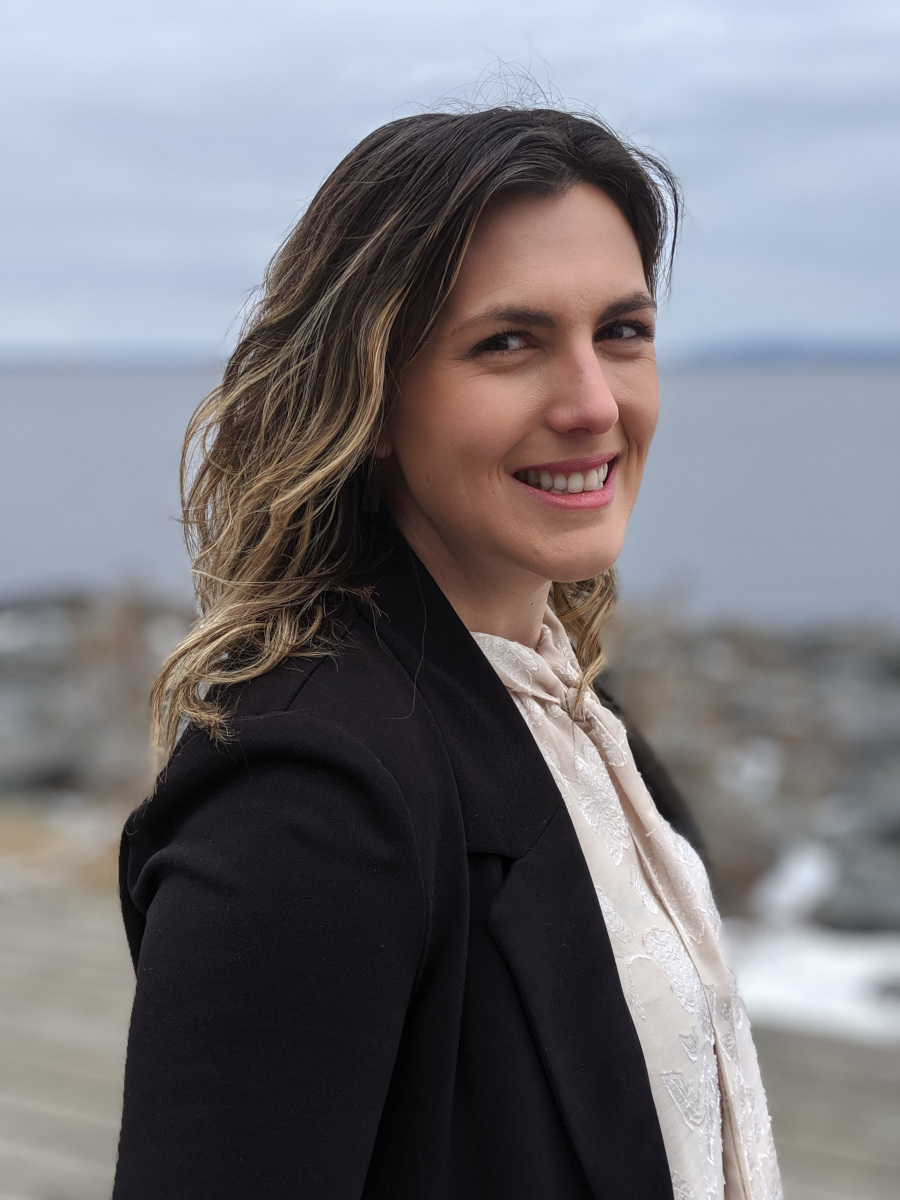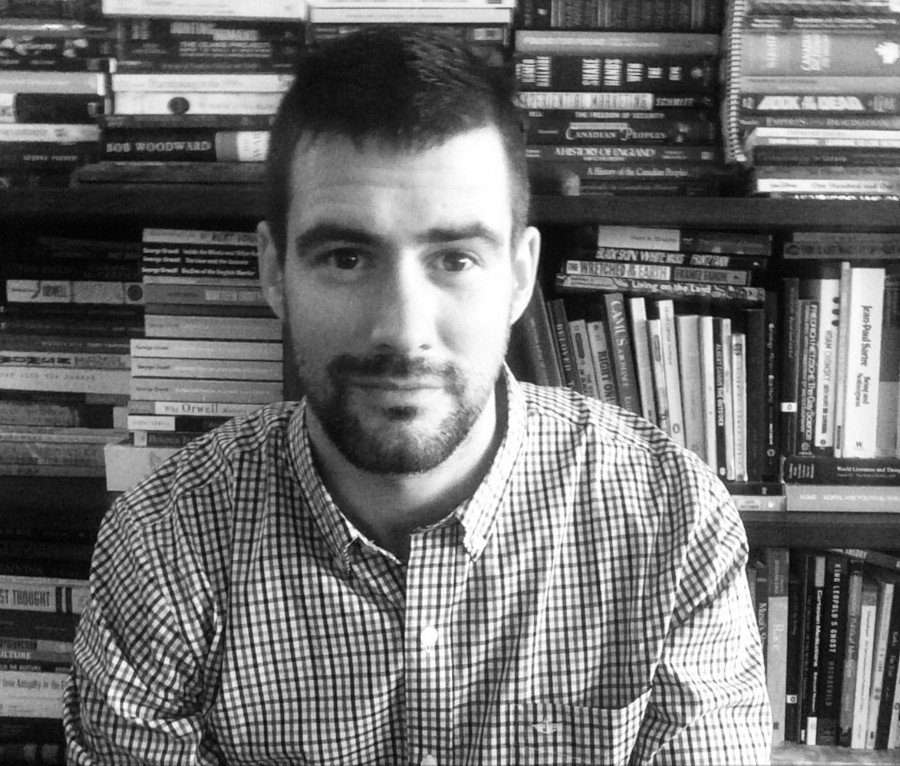Lakehead University researchers receive Banting Fellowships for projects involving First Nations people
July 26, 2021 – Thunder Bay, Ont.
Two Lakehead University researchers have been awarded Banting Postdoctoral Fellowships of $70,000 per year to study an online mental health intervention system for First Nations people and initiate a conversation about archival footage and medicine with Sandy Lake First Nation.
The Banting Postdoctoral Fellowships program provides two-year funding to the very best postdoctoral applicants, both nationally and internationally, who will positively contribute to the country's economic, social, and research-based growth.

Dr. Elaine Toombs will evaluate the development and implementation of a virtual, culturally-relevant mental health intervention system for individuals from First Nations communities to address accessibility related to substance use.
“Study objectives aim to contribute to the current evidence on mental health needs, delivery, and guidelines for First Nations people by promoting four major outcomes based on Indigenous Healing theories related to hope, belonging, meaning, and purpose,” Dr. Toombs said.
Seven treatment centres across Canada have collaborated to create this online intervention system.
“Together in collaboration with the Thunderbird Partnership Foundation, we have mobilized a virtual care environment to create and adapt content that can improve accessibility and continuity of services,” she said.
This content includes self-management resources, virtual psycho-educational groups, and virtual individual or group-based treatment for registered clients with each partnering treatment centre.
This research respectfully involves and engages Indigenous communities. Many First Nations communities report increased rates of substance use when compared to non-Indigenous communities. Within remote or rural communities, it can be difficult to provide consistent access to services.
The study will evaluate the development and implementation of a virtual culturally-relevant mental health intervention system for First Nations individuals to address accessibility to mental health services related to substance use.
Researchers will examine both outcome and process-based data, using a mixed-method approach including interviews with treatment centre staff and service participants, quantitative measures of participant well-being, and program feasibility measures of attrition, technological difficulties, and participant engagement. Results will be used to generate recommendations for future virtual health research.
Dr. Chris Mushquash, Associate Professor in Psychology and Canada Research Chair in Indigenous Mental Health and Addiction, is supervising Dr. Toombs during this project.

Dr. Travis Hay will bring archival records to members of Sandy Lake First Nation to initiate a conversation on histories of medicine shaped by political leaders, Elders, and collaborative research relations grounded in respect, reciprocity, and reconciliation.
“Anishinaabe communities in Northwestern Ontario have historically been positioned as sites of medical training, nutrition experiments, gene-hunting studies, and other forms of colonial science and medicine wherein settlers travel to communities to extract data,” Dr. Hay said.
His project, called Bringing It Back to Community: Archival Repatriation and Colonial Histories of Medicine in Northwestern Ontario, 1962-1999, will include databasing and digitizing archival records deemed significant to Sandy Lake First Nation.
“I will be working primarily with the Anishinaabe Elder Teri Redsky Fiddler, whose family has a rich history of leadership, resistance, and diplomacy within and beyond Sandy Lake. It is hoped that our collaborative project will lay the basis for future archival repatriation initiatives with other member communities of Nishnawbe Aski Nation,” Dr. Hay added.
Dr. Lana Ray, Assistant Professor of Indigenous Learning, Lakehead University Indigenous Research Chair in Decolonial Futures, Department of Indigenous Learning and widely recognized expert in community-based research methods, is supervising Dr. Hay during this project.
Dr. Andrew P. Dean, Lakehead’s Vice-President, Research and Innovation, thanked the Banting Postdoctoral selection committee for recognizing Lakehead’s researchers through these grants.
“A special thank you to our post-doctoral fellows and their supervisors as well – for your passion and dedication to your work,” Dr. Dean said.
“You help make Lakehead an award-winning, research-intensive university.”
– 30 –
Media: For more information or interviews, please contact Brandon Walker, Media, Communications and Marketing Associate, at (807) 343-8177 or mediarelations@lakeheadu.ca.
Lakehead University is a fully comprehensive university with approximately 9,700 full-time equivalent students and over 2,000 faculty and staff at two campuses in Orillia and Thunder Bay, Ontario. Lakehead has 10 faculties, including Business Administration, Education, Engineering, Graduate Studies, Health & Behavioural Sciences, Law, Natural Resources Management, the Northern Ontario School of Medicine, Science & Environmental Studies, and Social Sciences & Humanities. Lakehead University’s achievements have been recognized nationally and internationally, including being ranked, once again, among Canada’s Top 10 primarily undergraduate universities in Maclean’s 2021 University Rankings; as well as included in the top half of Times Higher Education's 2020 World Universities Rankings for the second consecutive year, and in the top 100 of 1,115 universities from around the world in THE's 2021 Impact Rankings (which assesses institutions against the United Nations’ 17 Sustainable Development Goals). Visit www.lakeheadu.ca.

